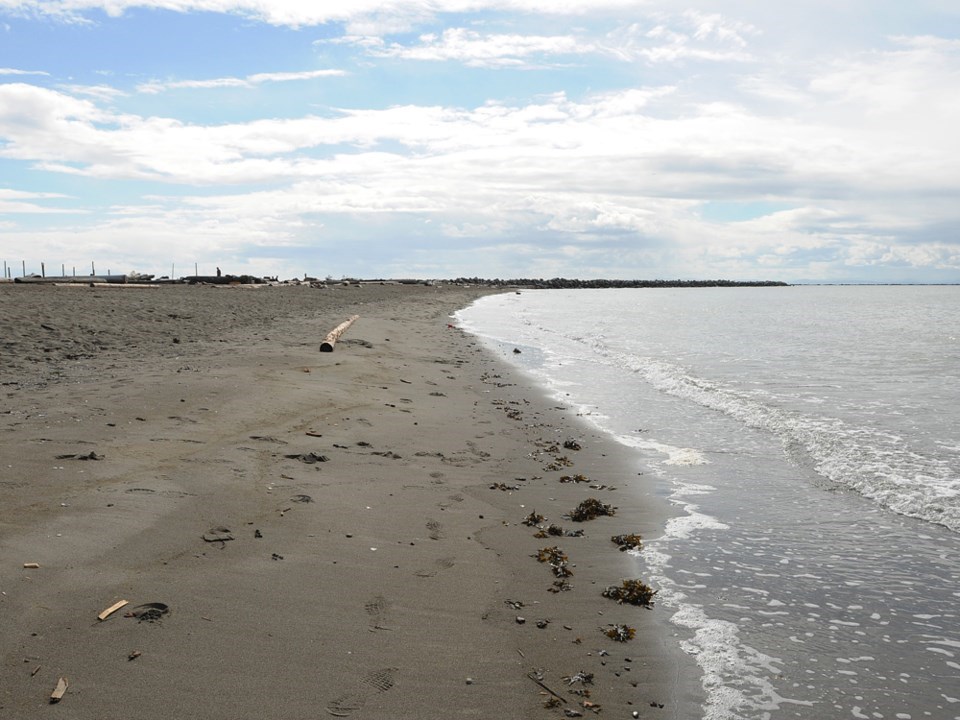A staff report that goes before Metro Vancouver’s regional parks committee Wednesday is requesting the RCMP provide more police patrols at Wreck Beach this year to respond to incidents involving drugs and alcohol.
Paul Brar, the west area division manager for regional parks, authored the report and described the University of B.C. RCMP detachment as a critical partner agency in supporting Metro Â鶹´«Ã½Ó³»in patrolling the clothing-optional beach.
“In 2022, the RCMP [UBC Detachment] had limited policing resources to support patrol efforts,” Brar said.
“The noticeable absence of a regular police presence posed challenges in responding to incidents involving drugs and alcohol and in closing the beach at night. Staff have shared these concerns with the RCMP [UBC Detachment] and have requested for additional RCMP support in 2023.”
500 steps
The request comes as the number of visitors to the popular beach has significantly increased, growing 44 per cent in five years. Last year, more than 838,000 visits were recorded to the beach, according to Brar’s report.
Unlike most of the city’s beaches, Wreck Beach is isolated and is generally reached by descending a trail of an estimated 500 steps from Northwest Marine Drive. The increase in visits has created “a number of challenges” to managing the beach, the report said.
“This includes response to medical emergencies, which require a coordinated effort by multiple emergency responders including the RCMP [UBC Detachment], Â鶹´«Ã½Ó³»Fire and Rescue Services, BC Ambulance Service and the Canadian Coast Guard,” the report said.
The coast guard’s hovercraft is heavily relied upon to assist paramedics with medical emergencies. But if the coast guard is unavailable to transport a patient off the beach, the patient must be carried by stretcher up the steps to Northwest Marine Drive to be transferred to an ambulance, the report said.
RCMP responded 176 times to beach in four years
Statistics included in the report show police, paramedics, firefighters and the coast guard responded to the beach an average of 132 times per year between 2018 and 2021.
The RCMP was most frequently called over that period (176 times) followed by paramedics (159), firefighters (117) and the coast guard (76), for a total of 528 calls between the four agencies.
That steady call load, however, dropped last year to 61.
“The lower volume of emergency incidents in 2022 is attributed to cooler temperatures during the peak summer months in combination with proactive safety measures that were introduced last year,” the report said.
Those measures include a solar-powered security light that was installed at the top of Trail 6 to improve visibility and assist public access after sunset. This area is used as an important staging area for emergency responders at night.
In 2022, a new log layout was introduced on the beach to provide clear sightlines for police and Metro staff patrols and assist in closing time sweeps. New wide pathways were created for emergency responder access.
The report said the BC Ambulance Service has offered to provide naloxone kits and training to Wreck Beach vendors and other interested people to reduce the harm and deaths associated with opioid overdoses, which continue to occur across the city and province at an alarming rate.
Patrol shifts 'challenging to fill'
Sgt. Chris Manseau, an RCMP media relations officer, said there was no planned reduction in service delivery to the beach.
"For the 2022 beach season from May to September, the number of shifts were fewer than the previous year," Manseau said in an email Tuesday. "This was due to inclement weather on some of the weekends and the availability of members available/interested in some overtime shifts."
Manseau said beach patrol shifts can be challenging to fill during the peak of the summer due to the heat, limited shade and the 500-step climb from the beach to the road. At the same time, officers on regular shifts have attended night closings with parks staff.
The detachment's officers work closely with a Metro Â鶹´«Ã½Ó³»parks operations supervisor and his staff during beach season and plan to continue for the 2023 season, Manseau said.
'Wreck beach is the soul of Vancouver'
Judy Williams of the Wreck Beach Preservation Society said she wasn’t aware of Brar’s report until contacted Tuesday by Glacier Media. Williams planned to read the report before attending Wednesday’s meeting.
“I hope this doesn’t mean they want to put a road down there,” said Williams, who has been an advocate for the beach for about 50 years.
There is no mention in the report of a proposed access road.
In a later email, Williams said: “Wreck Beach is the soul of Vancouver. Bureaucrats must not denigrate this beloved beach for any reason."
The mandate of the society is to preserve the beach, foreshore and cliffs “in as nearly a natural a state as possible while promoting the naturist lifestyle,” according to the society’s website
The beach is located along the west coast of Vancouver’s Point Grey peninsula and extends seven kilometres from Acadia Beach to the Musqueam Indian Band's reserve. It’s one of the largest clothing-optional beaches in the world.
The B.C. government established Wreck Beach as clothing-optional in 1983, with administration of the beach passed to Metro Â鶹´«Ã½Ó³»in 1989.
The beach is of historic and cultural importance to the Musqueam. It served as a fortified lookout and an encampment from which the Musqueam coordinated defence of their territory.



